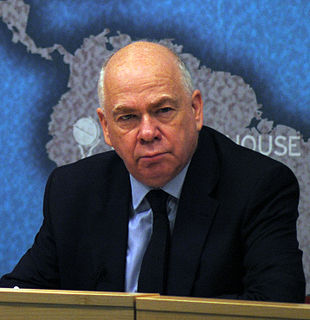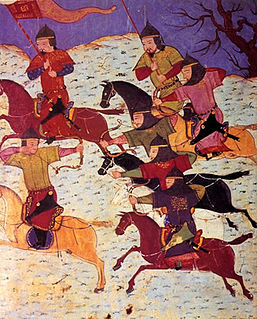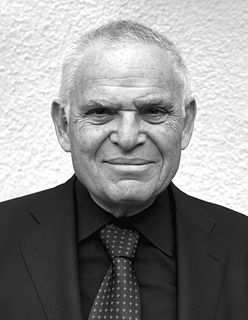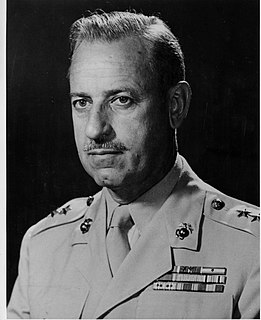 W
WAndré Beaufre was a French Army officer and military strategist who attained the rank of Général d'Armée before his retirement in 1961.
 W
WJohn Richard Boyd was a United States Air Force fighter pilot and Pentagon consultant in the second half of the 20th century. His theories have been highly influential in military, sports, business, and litigation strategies and planning.
 W
WBernard Brodie was an American military strategist well known for establishing the basics of nuclear strategy. Known as "the American Clausewitz," and "the original nuclear strategist," he was an initial architect of nuclear deterrence strategy and tried to ascertain the role and value of nuclear weapons after their creation.
 W
WSir John Chandos, Viscount of Saint-Sauveur in the Cotentin, Constable of Aquitaine, Seneschal of Poitou, was a medieval English knight who hailed from Radbourne Hall, Derbyshire. Chandos was a close friend of Edward the Black Prince and a founding member and 19th Knight of the Order of the Garter in 1348. Chandos was a gentleman by birth, but unlike most commanders of the day he held no inherited title of nobility.
 W
WThomas P. Christie is a career defense analyst who worked for the U.S. government.
 W
WCaptain Thomas Crawford or Thomas Craufurd (1530–1603) of Jordanhill was a trusted confidant of Henry Stuart, Lord Darnley, husband of Mary, Queen of Scots and a retainer of the Matthew Stewart, 4th Earl of Lennox. He famously planned the assault and led a small force of 150 men in 1571 that scaled the cliffs and embattlements to expel the castle garrison loyal to Catholic Queen Mary from Dumbarton Castle. Six years later, he became Provost of Glasgow, establishing a bursary for a student at the university and saving the cathedral from destruction.
 W
WSir Lawrence David Freedman, is Emeritus Professor of War Studies at King's College London. He has been described as the "dean of British strategic studies" and was a member of the Iraq Inquiry.
 W
WGuo Huaruo was a Chinese military strategist and lieutenant general of the People's Liberation Army. According to Alastair Iain Johnston, Guo was until the mid-1980s "the CCP's most authoritative interpreter and annotator" of The Art of War by Sun Tzu, but Guo was "practically unknown in the West".
 W
WAdriano Dayot Hernández, was a Filipino revolutionary, patriot, and military strategist during the Philippine Revolution and the Philippine–American War.
 W
WArtsrun Karapeti Hovhannisyan is the former press secretary of the Ministry of Defence of Armenia and an military expert and analyst. He has since March 2020 been the Head of the Command Staff Faculty at the Vazgen Sargsyan Military University.
 W
WJiang Ziya, also known by several other names, was a Chinese noble who helped kings Wen and Wu of Zhou overthrow the Shang in ancient China. Following their victory at Muye, he continued to serve as a Zhou minister. He remained loyal to the regent Duke of Zhou during the Rebellion of the Three Guards; following the Duke's punitive raids against the restive Eastern Barbarians or Dongyi, Jiang was enfeoffed with their territory as the marchland of Qi. He established his seat at Yingqiu .
 W
WViscount Kawakami Sōroku , was a general and one of the chief military strategists in the Imperial Japanese Army during the Donghak Peasant Revolution and First Sino-Japanese War.
 W
WOrda Ichen, was a Mongol Khan and military strategist who ruled the eastern part of the Golden Horde during the 13th century.
 W
WSahabzada Yaqub Ali Khan SPk, was a Pakistani statesman, diplomat, military figure, pacifist, linguist, and a retired general of Pakistan Army.
 W
WJohn Paul Kline Jr. is an American politician who served as a member of the United States House of Representatives from Minnesota's 2nd congressional district from 2003 to 2017. The district includes most of the southern suburbs of the Twin Cities, including Apple Valley, Inver Grove Heights, Burnsville, Eagan, Lakeville, Northfield, Shakopee, Prior Lake, and New Prague. A member of the Republican Party, Kline served as the Chairman of the House Committee on Education and the Workforce. Kline announced that he would retire from Congress at the end of his term in January, 2017.
 W
WLiu Bocheng was a Chinese Communist military commander and Marshal of the People's Liberation Army.
 W
WLiu Ji, courtesy name Bowen, better known as Liu Bowen, was a Chinese military strategist, philosopher, politician, and poet who lived in the late Yuan and early Ming dynasties. He was born in Qingtian County. He served as a key advisor to Zhu Yuanzhang, the founder of the Ming dynasty, in the latter's struggle to overthrow the Yuan dynasty and unify China under his rule. Liu is also known for his prophecies and has been described as the "Divine Chinese Nostradamus". He and Jiao Yu co-edited the military treatise known as the Huolongjing.
 W
WEdward Nicolae Luttwak is a strategist and historian known for his works on grand strategy, geoeconomics, military history, and international relations. He is best known for being the author of ''Coup d'État: A Practical Handbook'.
 W
WMaurice of Orange was stadtholder of all the provinces of the Dutch Republic except for Friesland from 1585 at the earliest until his death in 1625. Before he became Prince of Orange upon the death of his eldest half-brother Philip William in 1618, he was known as Maurice of Nassau.
 W
WMuqali, also spelt Mukhali and Mukhulai, was a Mongol general who became a trusted and esteemed commander under Genghis Khan. The son of Gü'ün U'a, a Jalair leader who had sworn fealty to the Mongols, he became known by his epithet "Muqali", "one who dulls", earned through his committed and able service to the Great Khan and the Mongol Empire. During the invasion of Jin China, Muqali acted as Genghis Khan's second-in-command, and was promoted to Viceroy of China, and was entrusted with a great degree of autonomy once Genghis Khan departed to conquer Central Asia. Unlike many Mongol leaders who were willing to massacre to gain any advantage, Muqali usually attempted to convert foes into friends by more conciliatory means, and change the Mongol image in China. By the time of Ogedei's reign (1229-1241), he was viewed as the best of the extraordinarily talented pool of Mongol generals. Given his undefeated record despite very limited resources, he is likely one of the greatest military commanders in history.
 W
WAir Commodore Jasjit Singh, AVSM, VrC, VM was an Indian military officer, writer, military strategist, and air commodore in the Indian Air Force. He retired as Director of Operations of the Air Force but remained head of the Institute for Defence Studies and Analyses (1987-2001). He was founder-director of the Centre for Air Power Studies, based in Delhi. He was awarded the Vir Chakra during the Indo-Pakistani War of 1971.
 W
WLennart Souchon is a German strategist and scholar of political philosophy and military theory. He was the director of the International Clausewitz-Center at the Military Academy of the German Armed Forces (1999-2018) and founded the Clausewitz Network for Strategic Studies in 2008. He was also a professor at the University of Potsdam (1993-2019) and lectured at the University of Halle-Wittenberg (2002-2004).
 W
WSubutai was a Mongolian general and the primary military strategist of Genghis Khan and Ögedei Khan. He directed more than 20 campaigns and won 65 pitched battles, during which he conquered or overran more territory than any other commander in history as part of the expansion of the Mongol Empire. He often gained victory by means of imaginative and sophisticated strategies and routinely coordinated movements of armies that operated hundreds of kilometers apart from each other. Subutai is well known for the geographical diversity and success of his expeditions, which took him from central Asia to the Russian steppe and into Europe.
 W
WSun Tzu was a Chinese general, military strategist, writer and philosopher who lived in the Eastern Zhou period of ancient China. Sun Tzu is traditionally credited as the author of The Art of War, an influential work of military strategy that has affected both Western and East Asian philosophy and military thinking. His works focus much more on alternatives to battle, such as stratagem, delay, the use of spies and alternatives to war itself, the making and keeping of alliances, the uses of deceit and a willingness to submit, at least temporarily, to more powerful foes. Sun Tzu is revered in Chinese and East Asian culture as a legendary historical and military figure. His birth name was Sun Wu and he was known outside of his family by his courtesy name Changqing. The name Sun Tzu by which he is best known in the Western World is an honorific which means "Master Sun".
 W
WEmory Upton was a United States Army General and military strategist, prominent for his role in leading infantry to attack entrenched positions successfully at the Battle of Spotsylvania Court House during the American Civil War, but he also excelled at artillery and cavalry assignments. His work, The Military Policy of the United States, which analyzed American military policies and practices and presented the first systematic examination of the nation's military history, had a tremendous effect on the U.S. Army when it was published posthumously in 1904.
 W
WDonald McPherrin Weller was a decorated officer of the United States Marine Corps with the rank of major general. He is most noted as pioneer of Naval gunfire support and author of many publications on this topic. Weller also commanded 3rd Marine Division and ended his career as deputy commander, Fleet Marine Force Pacific.
 W
WZhang Yunyi, was a Communist revolutionary and military strategist of the People’s Republic of China. Born in Wenchang, Hainan, he joined the Communist Party of China in 1926, and took part in the Northern Expedition, the Nanchang Uprising, the Baise Uprising, the Second Sino-Japanese War and the Chinese Civil War. Zhang held the posts of the army commander of the 7th Red Army, the assistant staff officer of the Military Commission of the Central Committee of the CPC, the commander of a military area, etc., and was named one of the ten Senior Generals in 1955. The Zhang Yunyi Memorial Hall is located in Wenchang, Hainan Province.
 W
WZhuge Liang, courtesy name Kongming, was a Chinese politician, military strategist, writer, engineer and inventor. He served as the chancellor and regent of the state of Shu Han during the Three Kingdoms period. He is recognised as the most accomplished strategist of his era, and has been compared to Sun Tzu, the author of The Art of War. His reputation as an intelligent and learned scholar grew even while he was living in relative seclusion, earning him the nickname "Wolong" or "Fulong", meaning "Crouching Dragon" or "Sleeping Dragon". Zhuge Liang is often depicted wearing a Taoist robe and holding a hand fan made of crane feathers.